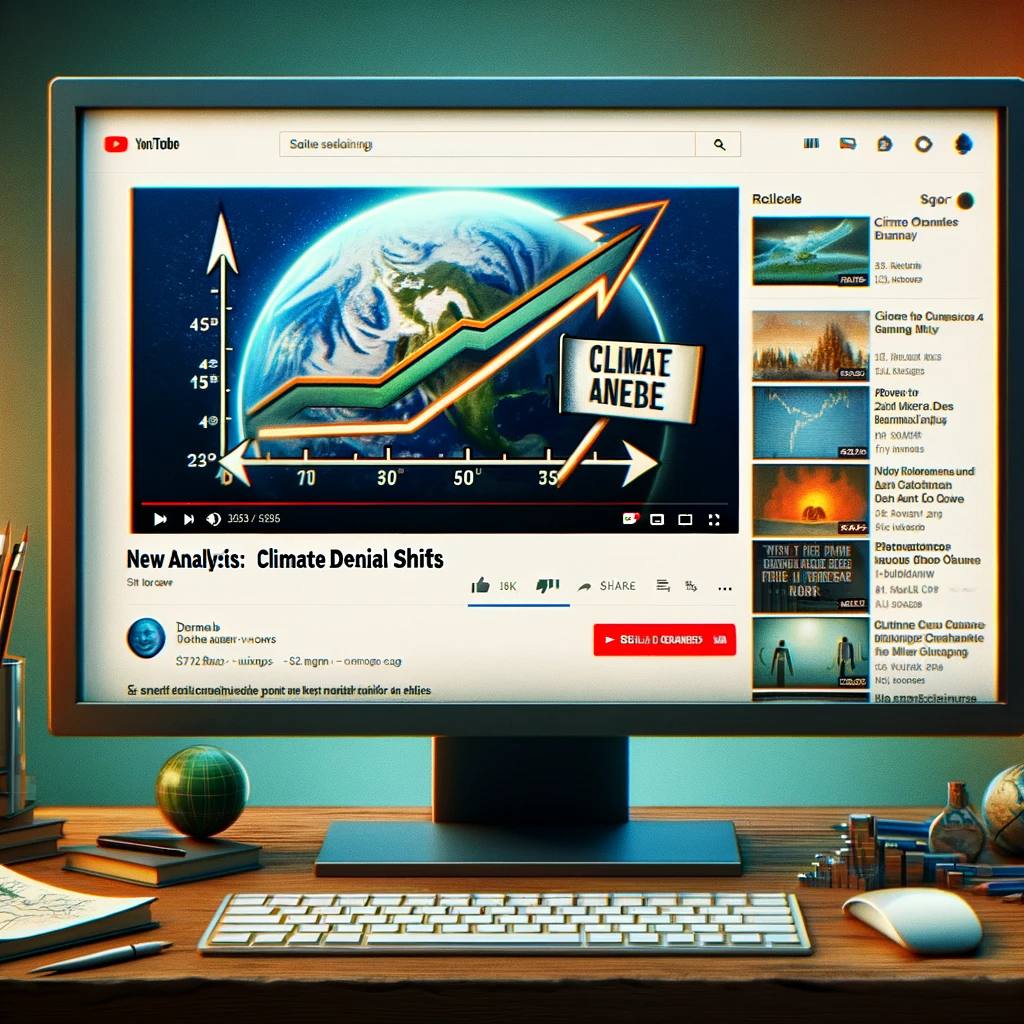A groundbreaking report by researchers at the Centre for Countering Digital Hate (CCDH) has shed light on the changing landscape of climate denial on YouTube. Using artificial intelligence, the study analyzed 12,058 videos from 96 YouTube channels, exposing a transition from “Old Denial” to “New Denial” concerning climate change. The research covered a dataset spanning 4,458 hours of content and found that “New Denial” now constitutes a significant 70 percent of denialist claims in 2023, compared to just 35 percent in 2018.
Key findings: Shift from old denial to new denial
The study, conducted with the help of an AI tool called CARDS (Computer-Assisted Recognition of Climate Change Denial and Skepticism), aimed to quantify and categorize climate denial claims within YouTube content. It revealed a significant increase in “New Denial,” where climate change is not denied but rather the focus shifts to downplaying its impacts and discrediting solutions.
Examples of “Old Denial” typically involved rejecting the existence of climate change or its connection to greenhouse gas emissions. In contrast, “New Denial” acknowledges climate change but often spreads misleading claims such as “plants and animals benefit from climate impacts or remain unaffected.” This shift in denial tactics poses new challenges for addressing climate misinformation.
Financial gains and YouTube’s policies
The analysis uncovered that videos containing climate denial claims garnered an astonishing 325 million views on YouTube. What’s concerning is that YouTube reportedly earns up to $13.4 million annually from climate-denialist ads. While YouTube explicitly prohibits monetization of “Old Denial” content, it seems to allow “New Denial” content to profit from ads, raising questions about the platform’s commitment to combating climate misinformation.
The report emphasizes the urgency for digital platforms, particularly Google, YouTube’s parent company, to revise their policies regarding climate denial content. Researchers argue for the inclusion of contradictions to the “authoritative scientific consensus on climate change” and misinformation about its causes, impacts, and solutions.
Extending recommendations to other platforms
The study’s recommendations extend beyond YouTube to platforms like Instagram, Facebook, and TikTok. It calls for a thorough evaluation of their policies towards climate change denial, especially those allowing the monetization and amplification of “New Denial.” While some platforms rely on third-party fact-checkers to address “Old Denial,” they often neglect the emerging narratives of “New Denial,” leaving critical gaps in content moderation strategies.
The report urges these platforms to take proactive measures, including demonetizing and de-amplifying “New Denial” content, to reduce the economic incentives driving the creation of harmful misinformation.
Social media and conspiracist beliefs
The report highlights a concerning correlation between social media usage and conspiracist beliefs about climate change. A previous CCDH poll revealed that a significant percentage of adults and teenagers who are highly active on social media platforms agreed with statements like “humans are not the main cause of global temperature increases.” This underscores the pivotal role of social media in shaping public opinion on climate-related matters and the need for urgent intervention to prioritize information integrity.
Climate Scientists and policymakers’ roles
The report also calls for increased resilience among climate scientists in the face of evolving climate denialism. It advocates strategies to help them disseminate accurate scientific information on social media, ensuring that deniers and trolls do not deter their efforts. Additionally, policymakers are urged to recognize the nature of new climate denial and adopt legislation under CCDH’s STAR framework, focusing on safety, transparency, accountability, and responsibility to enhance information integrity on digital platforms globally.
In conclusion, the CCDH’s study serves as a wake-up call to digital platforms, policymakers, and climate advocates. It underscores the growing threat of misinformation, particularly the emergence of “New Denial,” and calls for proactive measures to safeguard the integrity of climate-related discourse in the digital age.
A Step-By-Step System To Launching Your Web3 Career and Landing High-Paying Crypto Jobs in 90 Days.
